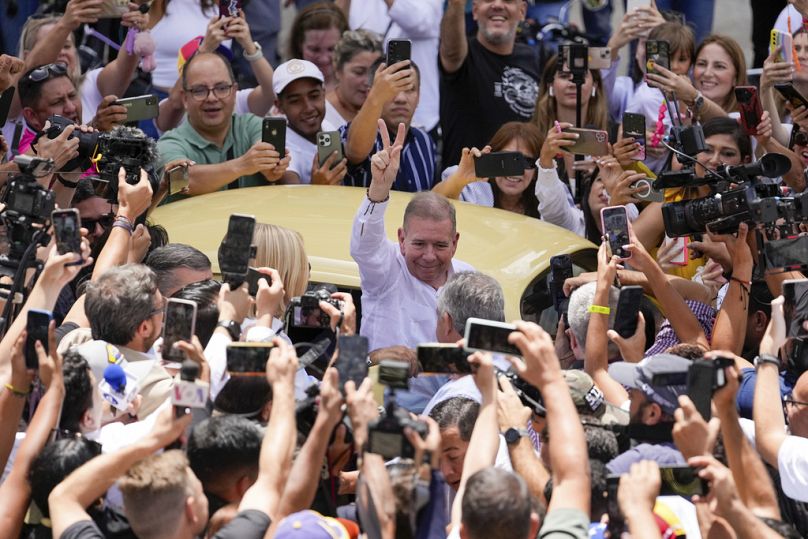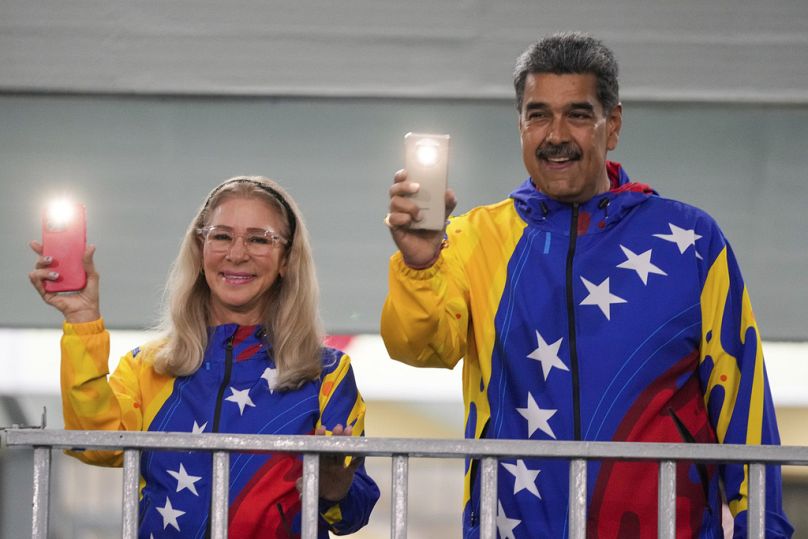The sitting president has reportedly secured 51% of the vote, beating the main opposition candidate, Edmundo González by a significant margin.
Nicolás Maduro has been declared as the winner in Venezuela’s presidential election, even as his opponents were preparing to dispute the results.
 ADVERTISEMENT
ADVERTISEMENT
 ADVERTISEMENT
ADVERTISEMENT
That decision sets up a high-stakes showdown that will determine whether the South American nation transitions away from one party rule.
Shortly after midnight on Sunday, the National Electoral Council said Maduro secured 51% of the vote, overcoming the main opposition candidate, Edmundo González, who garnered 44%.
However, the electoral authority, which is controlled by Maduro loyalists, didn't immediately release the tallies from each of the 30,000 polling booths nationwide - hampering the opposition’s ability to challenge the results after claiming it had data for only 30% of the ballot boxes.
The delay in announcing results - six hours after polls were supposed to close - indicated a deep debate inside the government about how to proceed after Maduro’s opponents came out early in the evening all but claiming victory.
Opposition representatives said tallies they collected from campaign representatives at the polling stations showed González trouncing Maduro. Meanwhile, the head of the electoral council said it would release the official voting acts in the coming hours.
Maduro, in seeking a third term, faced his toughest challenge yet from the unlikeliest of opponents in González: a retired diplomat who was unknown to voters before being picked in April as a last-minute stand-in for opposition powerhouse Maria Corina Machado.
US Vice President Kamala Harris offered her support for “The United States stands with the people of Venezuela who expressed their voice in today’s historic presidential election,” Harris wrote on the social media platform X - previously Twitter, “The will of the Venezuelan people must be respected."
The election will have ripple effects throughout the Americas, with government opponents and supporters alike signalling their interest in joining the exodus of 7.7 million Venezuelans who have already left their homes for opportunities abroad should Maduro win another six year term.
Maduro and his United Socialist Party of Venezuela, though, are more unpopular than ever among many voters who blame his policies for crushing wages, spurring hunger, crippling the oil industry and separating families due to migration.
Sunday's ballot also featured eight other candidates challenging Maduro, but only González threatened Maduro's rule.
After voting, Maduro said he would recognise the election result and urged all other candidates to publicly declare that they would do the same.
“No one is going to create chaos in Venezuela,” Maduro said. “I recognise and will recognise the electoral referee, the official announcements and I will make sure they are recognised.”
Venezuela sits atop the world's largest proven oil reserves, and once boasted Latin America's most advanced economy - but it entered into a free fall after Maduro took the helm.
Plummeting oil prices, widespread shortages and hyperinflation that soared past 130,000% led first to social unrest and then mass emigration.
Economic sanctions from the US seeking to force Maduro from power after his 2018 reelection - which the US and dozens of other countries condemned as illegitimate - only deepened the crisis.
Maduro's pitch to voters in this election was one of economic security, which he tried to sell with stories of entrepreneurship and references to a stable currency exchange and lower inflation rates.
But most Venezuelans have not seen any improvement in their quality of life with many families struggling to afford essential items.
The opposition has tried to seize on the huge inequalities arising from the crisis, during which Venezuelans abandoned their country's currency, the bolivar, for the US dollar.
González and Machado focused much of their campaigning on Venezuela’s vast hinterland, where the economic activity seen in the capital Caracas in recent years didn't materialise. They promised a government that would create sufficient jobs to attract Venezuelans living abroad to return home and reunite with their families.












